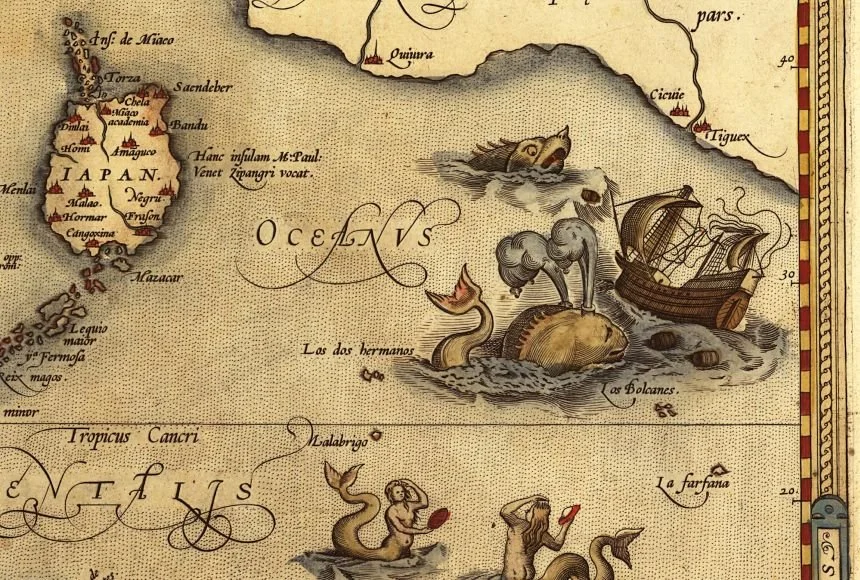The Ship of Gordon
/There’s an old puzzler from Ancient Greece that goes like this:
The ship wherein Theseus and the youth of Athens returned from Crete had thirty oars, and was preserved by the Athenians down even to the time of Demetrius Phalereus, for they took away the old planks as they decayed, putting in new and stronger timber in their places, insomuch that this ship became a standing example among the philosophers, for the logical question of things that grow; one side holding that the ship remained the same, and the other contending that it was not the same.
- Plutarch, Life of Theseus
So, is the ship still the ship of Theseus or is it something different after every piece of the original ship has been replaced? Philosophers have argued with various answers and interpretations for centuries. Some saying that the identity of a thing is tied to the physical nature of the thing. Others proposing that identity is more of a mental construction that is overlaid onto whatever it attempts to describe.
I’m a proponent of the mental construction argument. Fifteen years of therapy teaches a person how to separate who they are from whatever external events are occurring, as well as what internal feelings may take them away from the person they wish to be. One of my most beloved series of books is the Ender Quintet, or the Ender Saga. In the book Xenocide there is an ongoing conversation between two different alien species, usually centered around the weirdness of human beings. One argues that humans are distinctly weaker because they don’t undergo any substantial metamorphosis, but the other takes a different perspective:
Human beings *do* metamorphose. They change their identity constantly. However, each new identity thrives on the delusion that it was always in possession of the body it has just conquered.
- The Hive Queen
One of the truly WTF moments of my life was reading that every atom in my body was different from every atom in my body at the time of my birth. Continuing this trend of messing with my sense of self, I learned in anatomy class that nearly every cell in the human body is replaced roughly every seven to ten years. If every physical part of me changes, am I still Gordon? If I change all of my behaviors and act 180 degrees different than usual, am I still me? The short answer is yes. The longer answer is: yes, if I choose to remain Gordon.
After a new series of ECT, I’ve arrived at yet another of what I call threshold positions in my life. I can choose to either stay on this side and remain the Gordon I’ve always been. One who is naturally depressed and must occasionally bow to its whims. Alternatively, I can cross this threshold, remain who I am, but act in a manner that gets me to the Gordon I want to be and not the version that is so debilitated by my mind.
Returning to ships, there are two useful quotes about ships that relates well to personal development and recovery:
A ship in harbor is safe, but that is not what ships are built for. - J. A. Shedd
We design ships based on the ones that come back. - unknown
There was no computerized simulations of ships in storms in Ancient Greece. Ships were built and they were put to sea because that is what ships are for, but this was an iterative process. Not every ship came back. A new design that looked great might cross over the horizon and never be seen again. The ones that did return, however, those designs could be refined and replicated.
No ship is meant to stay in a harbor and no person is meant to stay in their bed. As the old maps would say at the edge: “Here Be Dragons". I know my monsters and I know the actions and mindsets that combine to hurt me and the life I’m continually working to build. Unlike ships, though, I am stuck with myself no matter how much of me I replace, rework, and rewire. Going into the winter months is always a challenge for me, so this is a good time to eliminate some old behaviors and introduce some new ones. I’ll explore those in an upcoming post, but to go back to the crux of the question that started this nautically-themed thought process — Am I still me if I change all that makes me, me?
I still say yes, but others may argue differently and say I’m a different kind of Gordon. Since it’s one of those questions that leads to more questions, I’ll end with the only definitive statement made on the subject of metamorphosis I’ve found in my readings:
“I cannot make you understand. I cannot make anyone understand what is happening inside me. I cannot even explain it to myself.” - Franz Kafka, The Metamorphosis




